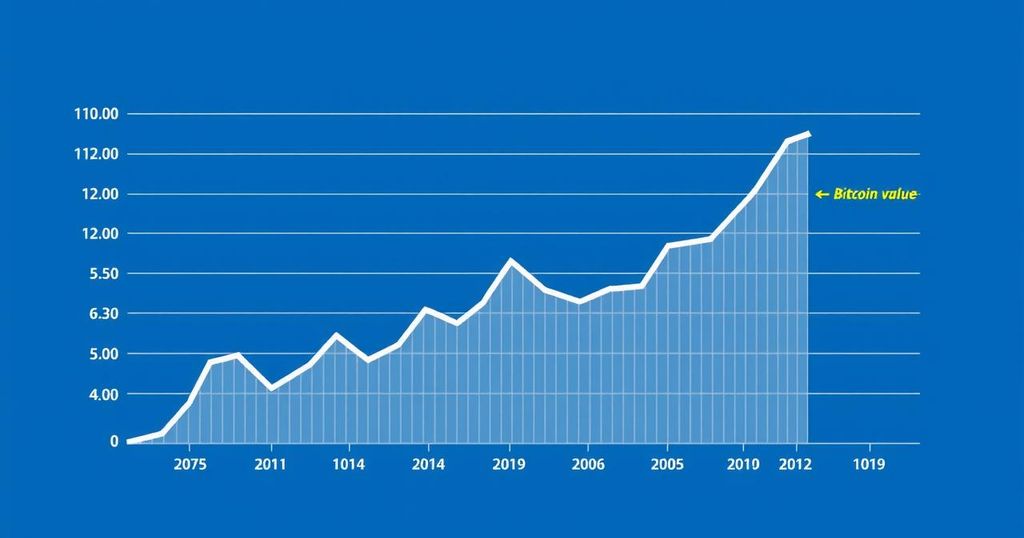Potential Bitcoin Rally Predicted as M2 Supply Rises and Holdings Expand
In a recent analysis, Michael van de Poppe optimistically predicts that Bitcoin could hit a new all-time high in the next three months due to correlating trends in the M2 money supply. Notably, his insights are based on the historical data indicating that Bitcoin prices have dynamically aligned with M2 trends. Meanwhile, Michael Saylor’s company, Strategy, has expanded its Bitcoin holdings significantly, drawing some community criticism regarding potential centralisation.
Michael van de Poppe, a prominent cryptocurrency analyst from Amsterdam, has suggested that Bitcoin could potentially reach a new all-time high within the upcoming three months. This claim is supported by a chart showing a rising trend in the M2 money supply, which includes all cash and deposits in circulation, shared by Julien Bittel from Global Macro Investor (GMI). The correlation between Bitcoin’s price and M2 demonstrates a historical pattern; notably, Bitcoin prices dropped when M2 was at its lowest point earlier this year.
According to Poppe, a continued rise in M2 could be a precursor to surging Bitcoin prices. He notes that the current overall money supply has reached a staggering $120 trillion, which may forecast an imminent price rally for Bitcoin. Furthermore, he theorises that such an increase could lead to a strengthening of the Chinese yuan against the U.S. dollar, a reduction in gold prices, a decrease in the U.S. dollar index, and an upswing in the altcoin market.
In a related development, Michael Saylor’s company, Strategy (formerly MicroStrategy), has made headlines with its latest Bitcoin acquisition of 4,459 BTC, costing approximately $285.8 million. This acquisition increases Strategy’s overall holdings to 531,644 BTC, valued at over $45.5 billion, translating to a current Bitcoin price of $85,584 per coin.
However, the company’s accumulation of Bitcoin has drawn criticism from figures such as entrepreneur Vinny Lingham. He likened Strategy’s growing Bitcoin reserves to the Federal Reserve for Bitcoin, raising concerns about the centralisation of Bitcoin ownership. Lingham argues that further concentration in the hands of corporate entities could contradict the decentralised vision conceived by Bitcoin’s creator, Satoshi Nakamoto.




Post Comment